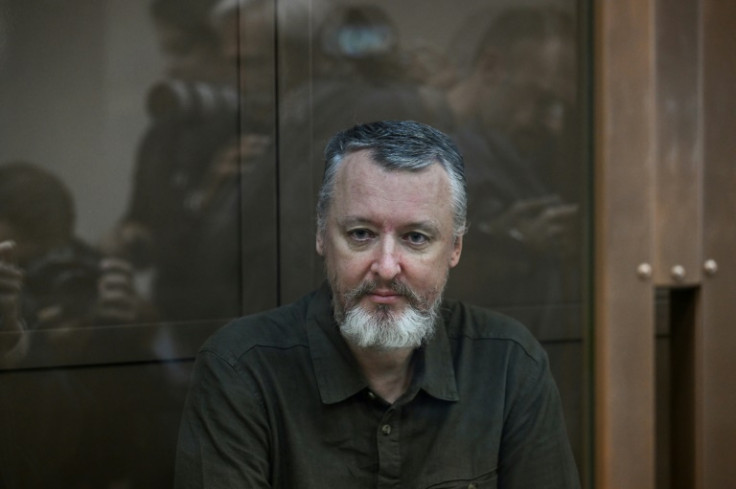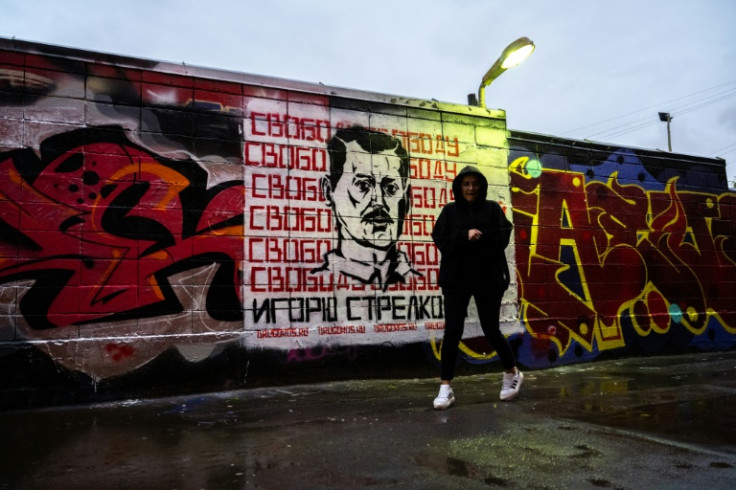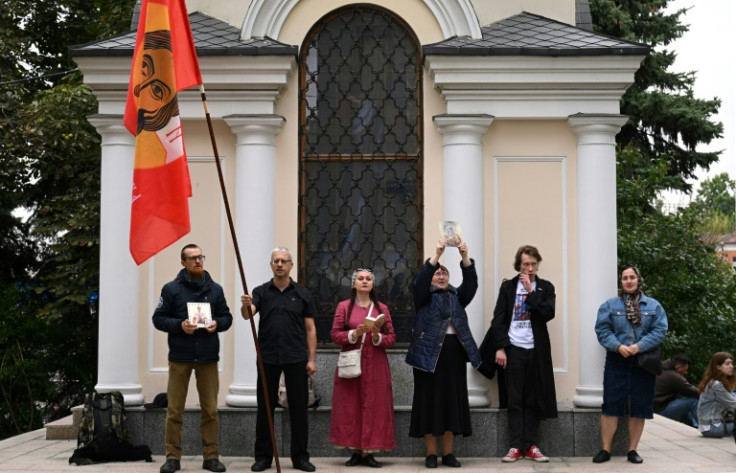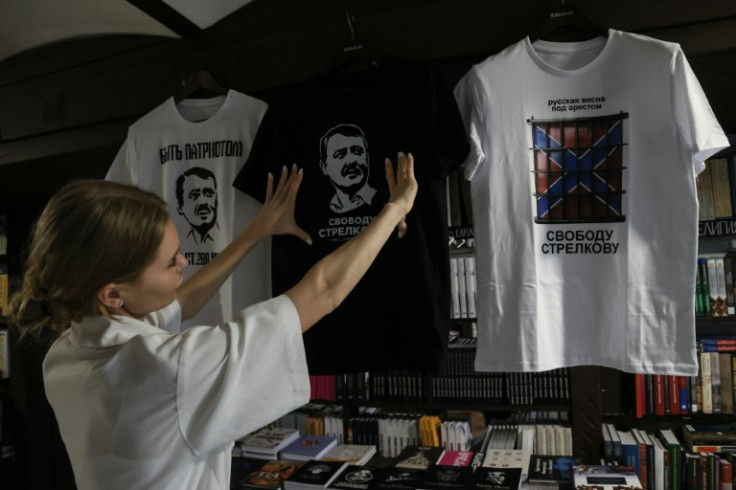Igor Girkin: Rebel Donbas Leader Turned Kremlin Critic

A war veteran, former intelligence officer, and once a commander of pro-Russian ragtag rebels in eastern Ukraine, Igor Girkin has lived many lives.
But his latest reinvention as a nationalist blogger and firebrand critic of Russia's military leadership and President Vladimir Putin has proved the most precarious.
After the Kremlin launched its full-scale invasion of Ukraine last February, Girkin grew an audience by excoriating Russia's military failings.
"The country will not survive another six years with this cowardly mediocrity in power," wrote the 52-year-old -- who wears his moustache in the style of a Tsarist officer -- in one of his recent posts.
He was arrested in July on extremism charges and is facing up to five years in jail.
The detention of a prominent pro-intervention figure illustrates how the grinding conflict has turned authorities not just against liberal activists but also hardliners goading the Kremlin to up the ante.
His appearance in court Tuesday comes after Russian mercenary chief Yevgeny Prigozhin died in a plane crash after trying to oust Russia's military leadership in circumstances still being investigated.
Girkin is better known by his pseudonym Strelkov (that roughly translates as "shooter") -- a moniker earned after decades working in or around conflicts.
"He's a veteran of five wars and a leader who influences public opinion. By conviction, he is a monarchist and a nationalist," Pavel Gubarev, who fought with Girkin in eastern Ukraine, told AFP.
Girkin's moment of glory came in 2014 when he was the leader of Kremlin-backed rebels fighting against Kyiv's troops for the Donetsk People's Republic, an unrecognised breakaway region in eastern Ukraine.
In 2022, a Dutch court sentenced him to life in prison in absentia for the shooting down of Malaysia Airlines flight MH17 over the region in July 2014, with all 298 people on board killed.
Girkin was born in Moscow into a military family in 1970. He was a history nut and took part in reenactments of prominent Russian battles.
Real war soon followed. In the 1990s, he fought with separatists in Moldova and then in Bosnia alongside the Serbs.
He then joined Russia's FSB intelligence service, serving first in Dagestan, then in Chechnya, before leaving shortly after the turn of the millennium.
But already he was understood to have become close to ultra-conservative oligarch Konstantin Malofeyev, who was accused by the West of fomenting separatism in Ukraine.
"Strelkov" resurfaced in March 2014 in Crimea at the head of a group of pro-Russian militants just as Moscow was preparing to annex the Ukrainian peninsula.
Fighters under his command thereafter deployed to Donbas as separatists. They captured the city of Sloviansk, turning it into a stronghold and de facto kicking off the conflict in eastern Ukraine.
"I'm the one who pulled the trigger to start the war," Girkin told Russian nationalist newspaper Zavtra in 2014.
Sanctioned by the West for his role in the conflict, Girkin was accused by Ukraine of being an agent of Russian military intelligence.
But his time as a separatist leader proved short.
In July 2014, he ordered a retreat from Sloviansk as the Ukrainian army advanced.
A month later he was removed from his post in unclear circumstances, returned to Russia and spent the next eight years in relative anonymity.
Strelkov's supporters praise him for his intelligence, tenacity and upstanding character.
"Strelkov is a man of principle who doesn't compromise," Mikhail Aksel, an organiser for the political party The Other Russia, told AFP.
It was Russia's invasion of Ukraine in February 2022 that brought Strelkov back into the limelight.
He backed the war but was vocal about his contempt for Russia's military leadership, accusing them of incompetence and blunder after blunder.
"He was a Putin supporter but after a while he became disillusioned," Aksel said, adding that Girkin had become "dangerous" because of his "uncontrollable" character.
The point of no return came after Prigozhin's abortive attempt to oust the top brass in June, a move he did not support.
He called for "someone really competent and responsible" to be given power and was arrested three days later.
In an ironic twist, his ideological opposite Alexei Navalny -- who has also been imprisoned by the Kremlin -- now describes Girkin as a "political prisoner".



© Copyright AFP {{Year}}. All rights reserved.





















